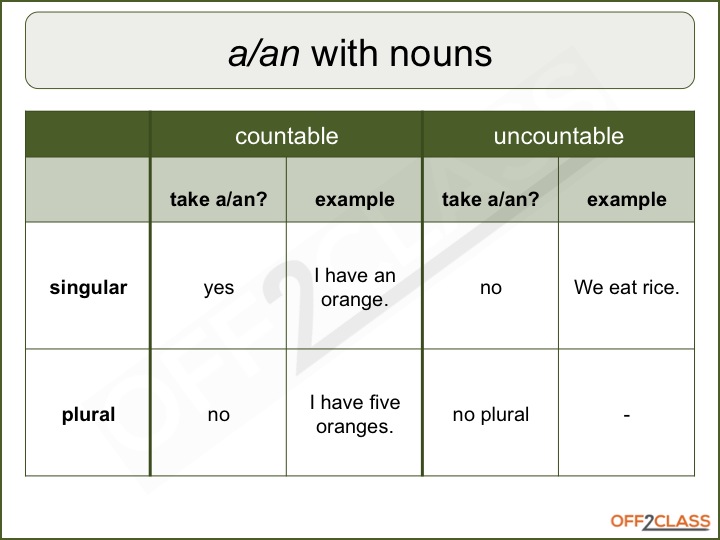

She edits lesson plans, creates new materials, and writes weekly blog posts for ESL-Library and Sprout English. Tanya is a freelance editor and writer with an extensive background as an ESL teacher.

Try the following printable exercises for some practice with count and non-count nouns.Įxercise 1: 1. Most non-count nouns can be grouped as food, liquids, feelings, small particles, gases, materials, groups of similar items, activities, sports, and school subjects. It is difficult for students to memorize every non-count noun in English, so telling them the categories or types of non-count nouns helps. They never take the articles a, an, or numbers. Non-count nouns almost never have an -s ending (some exceptions are news and certain school subjects like mathematics, physics, etc.). For example, you can’t say one rice, two rices, three rices, etc. They are called non-count nouns (also known as uncountable or mass nouns). There are some nouns in English that can’t be counted. Examples include child/children, tooth/teeth, mouse/mice, man/men, woman/women, and knife/knives.

These words have irregular plural forms where the word changes in some way. Note: English has some words that don’t take -s. However, the or a number higher than one is possible. When the count noun is plural, we add the ending -s, and we don’t have to use an article. When the count noun is singular, there is no -s ending, and we use an article like a, an, the, or one. You can say one apple, two apples, three apples, etc.Ĭount nouns can be people, places, or things. They have this name because they can be counted. In English, most nouns are count nouns (also known as countable nouns). Try the method below, and count on a good result! Non-count nouns aren’t so difficult for students if you present them in a certain way.

One of our subscribers recently asked me to blog about count and non-count nouns, and with our lesson of the week on food, I figured it was the perfect time to do so! Lower-level students need to learn about the differences in nouns fairly early on so that they can use plural forms and articles correctly.


 0 kommentar(er)
0 kommentar(er)
